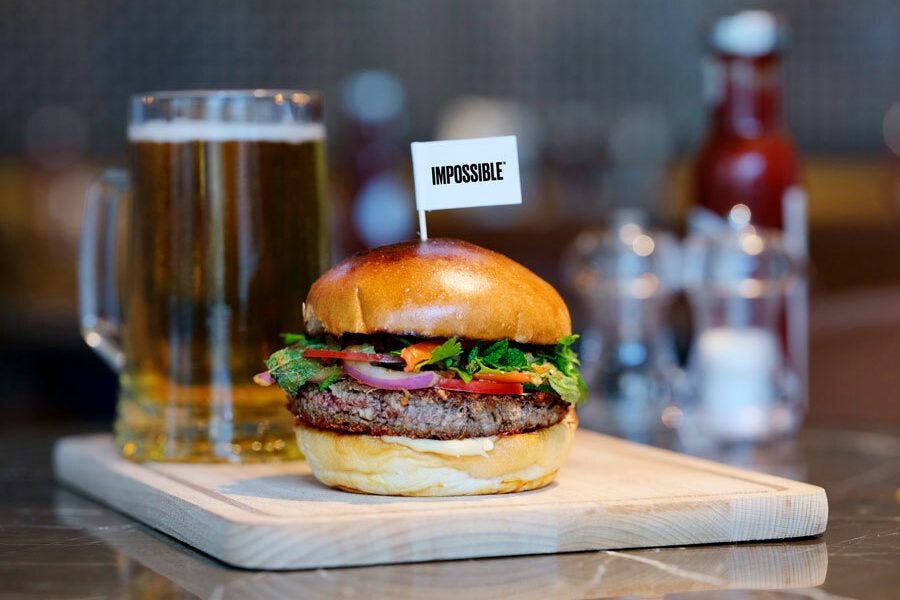Coercion is still coercion, even if it's (supposedly) for the greater good
In 2019, an American professor argued that global crises demand coercive solutions. Then came 2020 — and we got a glimpse of what that really means.
In 2019, philosopher Steven D. Hales published an essay in Quillette, “The Futility of Guilt-Based Advocacy,” arguing that individual actions — like recycling, flying less, or going meat-free — are futile against systemic global issues like climate change.
Hales, a professor at Bloomsburg University of Pennsylvania, made three key points:
Individual actions are essentially ineffective
Hales conceded that climate change is an “emergent” or “aggregative” problem, driven by billions of actions. One person’s individual actions — ditching a plastic straw or skipping eating meat — makes up a negligible fraction of the global total. Each person’s share of emissions or pollution is “one in 8 billion” — and therefore your sacrifice barely registers.Guilt-based advocacy fails
The author argued that guilt-driven sacrifices are illogical. If climate change is solved, your personal efforts probably weren’t necessary. If it isn’t solved, your efforts were probably wasted. Since other people will likely reason the same way as you, guilt fails as a motivator, and the rational choice is to maintain your lifestyle rather than sacrifice in vain.The rational alternative is coercion
Systemic problems require systemic solutions, therefore Hales advocated for coercive measures — carbon taxes, emissions standards, or penalties — that align individual incentives with collective goals.
Hales writes:
Coercion is a good approach, since it is now in everyone’s rational self-interest to comply, and because (almost) everyone is participating, the trouble caused by group action disappears as a result of group action. That’s the strategy behind carbon taxes and credits, and it doesn’t lead to the same failure mode as guilt. Again, though, we will need world-wide coercion for genuine success.
Months after Hales’ essay was published, the world got a stark lesson in what his concept of “coercion for the greater good” looks and feels like.
When COVID hit, under the banner of public health, people around the world were: locked inside their homes, forbidden to gather or worship, fired for refusing vaccines, restricted from travel, schooling, and healthcare for choosing not to comply, silenced online for daring to share an unpopular opinion, and tracked by apps day and night. All “for the greater good.”
Now that the COVID crisis has passed, under the banner of climate responsibility, we’re seeing: farmers pushed off their land, energy rationed, behaviors tracked, synthetic food promoted, and carbon budgets, digital IDs, and programmable money on the verge of being implemented. Once again, all “for the greater good.”
We’re not denying that genuine systemic problems exist. But “crisis” has become the go-to justification for coercion — and the “greater good” is whatever a centralized authority says it is. Which leads to some obvious questions:
Who gets to define the “greater good”? Coercion assumes someone or some body has the moral authority to declare the collective aim towards which we all strive. But history shows how often those “aims” are shaped by ideology, lobbying, or elite interests.
Can coercion ever stay contained? Temporary coercion measures often become permanent infrastructure. There are currently 48 national emergencies in effect in the United States, some of which were declared decades ago and never rescinded, long after the actual emergency passed.
Who enforces the coercion, and with what tools? Technology now makes enforcement possible at levels George Orwell never could have imagined — and so many people are now primed and ready to accept their own imprisonment under the banner of “progress” or “saving the planet.”
We already know the answers and how they play themselves out. When coercion is justified as necessary, you end up with authoritarianism or technocracy or a mix of both. What you get is a system where decisions are made by unaccountable “experts” (paging Dr. Fauci) and by algorithms that don’t answer to the people.
Mild coercion can serve a purpose — traffic laws, clean water rules — but at what cost? There’s a critical difference between managing the flow of traffic and managing the flow of human thought, speech, and movement. Or managing resources at a global scale under the banner of climate crisis.
Once coercion is normalized, it doesn’t retreat — it evolves. Today it’s your smart thermostat. Tomorrow it’s a brain-implanted tracker.
The professor makes no mention, of course, of the role businesses and industry have in taking responsibility for the climate “crisis.” Only that individual action — even though he admits it’s essentially ineffective — must be coerced, like when a herd of impala runs into a pride of lions. The impala always pays the price. That’s us; the little guys.
The road to hell may be paved with good intentions. But coercion — even “for the greater good” — is still coercion. We might suggest Professor Hales revisit the etymology of the word philosophy (love of wisdom); he’s demonstrated neither.




When I hear the phrase "for the greater good" I'm immediately distrustful of what is being put forth.
Coercion is little more than bullying and eventually someone stands up to the bully and reveals their true nature.
On a national level where billions of dollars are available it isn’t hard to reveal the true nature as just greed………..but, and there is the rub, we have to be willing to open our eyes and look, so many do not want to open that door out of fear of what they may find out.
“It is easier to be fooled than to admit you have been fooled”